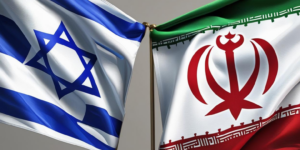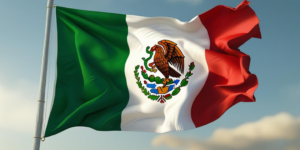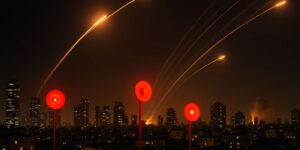Police, Islamists Put Up Obstacles to Worship in Indonesia
Government officials in West Java Province blocked one church from worshiping, and Islamic groups pressured authorities to seize the property of another during the Christmas season.
The Bogor Regency Administrative Leadership Council tried unsuccessfully to forbid the Gereja Kristen Indonesia (Indonesian Christian Church, or GKI) in Bogor’s Taman Yasmin area from holding a Dec. 25 Christmas service, but authorities did block it from its regular Sunday service on Dec. 26. In Rancaekek, Bandung, Islamic demonstrators on Dec. 19 got police to remove items from a Huria Kristan Batak Protestan (HKBP) church building that had already been sealed.
In Bogor, GKI Yasmin spokesperson Bona Sigalingging said police telephoned church leaders to forbid Christmas services that were to begin at 7 p.m. on Dec. 25.
“At that time the leaders rejected the police order,” Sigalingging told Compass.
Church leaders went to a strip of land in front of the GKI Yasmin building, which the Bogor city government has sealed, to set up a rented tent for the Christmas service. Local police arrived and ordered that the service be cancelled, but again church leaders refused, Sigalingging said.
They continued setting up the tent and arranging benches, and at about 5:30 p.m., 10 women wearing Muslim head coverings (hijabs) arrived to demonstrate against the Christmas service. Male demonstrators in Muslim clothing joined the demonstration at 7 p.m., and protestors from the Islamic People’s Forum (FUI) pressured police to stop the service.
At 8 p.m., the Christmas prayer and reflection service began, with demonstrators screaming, “Allahu akbar [God is greater]!” and “Break it up!” They also yelled, “Arrest the provocateurs,” Sigalinging said.
Though upset, the congregation continued to worship, he said. As they sang “Silent Night” and lit candles, the demonstrators shouted all the louder, moving toward the worshippers. They came within three meters of the worshippers before police were finally able to restrain them.
The congregation continued in solemn prayer and song, with the mob yelling until the service finished at 9 p.m.
Church leaders were meeting at 12:45 a.m. to plan the next morning’s 8 a.m. worship service when a member of the legal team received a phone call asking them to meet with members of the army and intelligence services, as well as with Bogor city and West Java police. At the meeting, a soldier speaking for the Bogor municipality requested that the GKI cancel Sunday morning worship scheduled for Dec. 26, Sigalingging said.
“The soldier also spoke about the growing issue of defamation of religion [Islam defaming Christianity], and how this would be very embarrassing if the issue spread,” Sigalingging said. “Because of this, he asked the church to cancel services.”
Church leaders rejected the request, saying that the way to resolve religious defamation problems was to enforce the law and stand firm against intolerance and intimidation, Sigalingging said.
“They could also obey the decision of the State Administrative Court, which had found that the church had a legal building permit and had the right to worship even by the roadside,” said Sigalingging.
The roadside services marked a retreat from the church legal position, he said, as the administrative court had ruled that the church could worship in its building.
“Although the City of Bogor had requested a rehearing, this is no reason to delay the execution of the decision according to law 14/1985,” he said.
Sigalingging said that the decision of the administrative court had the force of law, and that the GKI Yasmin congregation should have been allowed to worship in its building. The court had found that the building permit was legally obtained and that the Bogor municipal government could not revoke the permit. The court had ordered Bogor to rescind the revocation order.
The meeting finished at 1:30 a.m., with the church firmly committed to holding Sunday worship on Dec. 26. Bogor officials responded by sending police to the worship site on Abdullah bin Nuh Street in Yasmin Park; from early morning on, the road was barricaded at both ends.
As a show of force, water canon trucks appeared.
“The police excused their action by saying that it was designed to stop troublemakers who might try to use religion as a mask,” Sigalingging said. “These kinds of people had been there since morning. However, such excuses were not accepted by the congregation. The congregation could not get close to their church, and they were even asked about their permission to worship.”
As a result, the congregation was not able to worship; they did pray in the middle of the street, he said.
In a press conference at the Wahid Institute protesting the discrimination, GKI Yasmin leaders along with representatives of the Indonesian Fellowship of Churches said that they were concerned.
“Discrimination is becoming systemic and spreading, yet it is ignored by the nation in many places,” Sigalingging said in a statement he read that was also signed by Pastor Ujang Tanusaputra and Pastor Esakatri Parahita.
An interfaith group that has been assisting the GKI church issued a three-point appeal: cease all slander and obstructions to finishing construction of the GKI church building, which was legally underway, and allow the congregation to worship in it; the state must be firmer in dealing with intolerant groups that terrorize those of a different faith; and strengthen the constitution, Pancasila (the state philosophy that includes belief in one God without specifying any particular religion) and the practice of unity in diversity (Bhineka Tunggal Ika).
The executive secretary for research and communication for the Fellowship of Churches in Indonesia, the Rev. Henry Lokra, said at the press conference that contrary to the claims of protestors, no illegal worship exists in the nation.
“Because of this, when the government apparatus is passive, it is violating the constitution,†Lokra said. “In the case of GKI Yasmin, passivity has led to the blocking of those who wish to worship rather than blocking those who demonstrate. This is a basic human rights violation.”
Organizations such as the Islamic Defenders Front (FPI), the FUI and the Islamic Reform Movement (Garis) “have absolutely no constitutional right to forbid the building of a place of worship, because the forbidding of permission for a place of worship is the right of the government,” he said.
Chairul Anam of the Human Rights Working Group commented that the incident was a violation of the constitution and the law by the Bogor municipal government, which sealed the church even though the GKI had won decisions in the case all the way to the Supreme Court.
“When Bogor asked for an appeal, the Supreme Court refused,” Anam said.
An appeal in any legal system does not nullify a previous decision, said Anam. “Because of this [principle], the Supreme Court decision regarding GKI Yasmin cannot be revoked,” he said.
The central government should sanction or otherwise take strong actions against those in the Bogor city government who disobeyed the law and the constitution by sealing the church building, he said.
Another problem, Anam said, was the extreme measures police took, using mobile barricades and water cannons to control 50 demonstrators.
“What the police did was actually terrorizing the congregation,” he said, adding that the measures prevented GKI members from getting to their church site. “The police were supposed to neutralize the 50 demonstrators that were propagandizing, instead of blockading the congregation from worship.”
The state has given in to a small gang of Muslim thugs, “and this small gang of Muslims does not represent the Indonesian Islamic community,” he said, adding that the Bogor city government should quickly remove the seal. “The police must act decisively and not make those who disobey the law heroes.”
The head of the Legal Advocacy and Human Rights Association of Indonesia, Hendrik Sirait, said that politics played a role in the GKI Yamin church’s problems. A Bogor police official, Sirait said, indicated that obstacles to the church’s worship resulted from a pact between the Bogor government and a political party.
“The police have become intimidators rather than peace officers,” he said.
Church Property Seized
In Rancaekek, Bandung, Islamic protestors occupying the front part of the Huria Kristan Batak Protestan HKBP church premises on Dec. 19 clamored for police to remove property from the building; eventually authorities removed the pews and other items.
The local government had already sealed the building, but demonstrators from the hard-line Muslim Intellectuals Gathering Forum of Rancaekek arrived at 4 a.m. on Dec. 19 calling for its belongings to be removed, sources said.
The Rev. Badia Hutagalung said he was sleeping in the rented house adjacent to the place of worship when he saw 15 demonstrators locking the property fence and calling for him to wake up and leave the premises.
“Why do you live in a place that has been sealed?” asked one in the crowd when Hutagalung came out. He explained to the protestor that the district head had unsealed his home when he realized it had nothing to do with the church worship.
At 7 a.m., when the mob forced the pastor to leave the house, he climbed over the 1.5-meter fence that “the crowd had glued shut the lock” and called one of the elders, Jawadi Hutapea. He arrived, and Hutagalung also called police and the district head to ask them to come immediately. Three policemen arrived but only watched the mob from a distance, he said.
When Compass arrived at 8:30 a.m., nearly 100 protestors were occupying property in front of the fence and shouting for the local government remove all property inside.
The district head of Rancaekek, Meman Nurjana, arrived at 9 a.m. but was unable to calm the protestors. The district head, police chief, representatives from the Police Civil Service (Satpol PP) and the Muslim Intellectuals Gathering Forum held a discussion in the middle of the crowd. Authorities promised to remove the items later, but the crowd demanded it be done immediately.
Local officials ultimately brought three cars to take property out of the place of worship, and at 10:30 a.m. the pews along with other items were seized.
The chairman of the Bandung Muslim Intellectuals Gathering Forum, Abu Sofyan, told reporters that the HKBP Rancaekek church should have been closed since 2006. A lawyer for the HKBP Rancaekek church, Usman Poncho Silitonga, said he did not understand why demonstrations were continuing after the church and others had been sealed.
“There’s no rule that allows the removal of property from the the HKBP church,” he said.
The sealing by the local government was illegal, a church representative said, because it was not given public notice.



























































